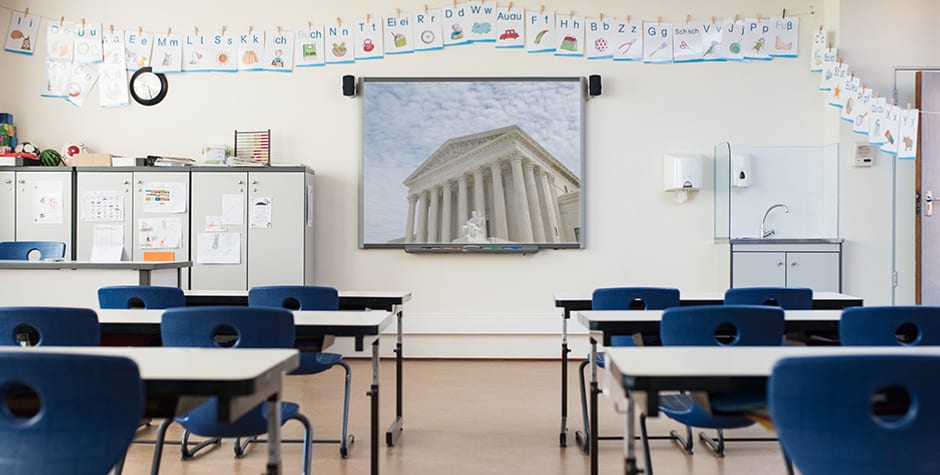ACLJ Takes Stand for Parental Rights in Supreme Court Brief: Defending Families of All Faiths
This week, the ACLJ submitted a powerful amicus brief to the Supreme Court in Mahmoud v. Taylor, a critical case defending the fundamental right of parents to direct the religious and moral upbringing of their children. At the ACLJ, we’ve long stood for the constitutional rights of all Americans, regardless of their faith tradition. This case exemplifies our commitment to protecting religious liberty for all people whenever the government oversteps its bounds.
The Case at Hand
Mahmoud v. Taylor addresses a fundamental question: Do public schools burden parents’ free exercise rights when they teach children ideas that directly contradict their parents’ religious beliefs and moral values?
The Fourth Circuit wrongly concluded that “mere exposure” to ideas contrary to parents’ religious beliefs doesn’t burden religious exercise. According to the lower court, unless the school “coerces” students to change their beliefs or act contrary to their faith, there’s no Free Exercise violation.
Our brief explains why this reasoning is fundamentally flawed.
Education Is More Than “Mere Exposure”
As we explain in our brief, education isn’t about “mere exposure” – it’s about teaching and inculcating values. The entire purpose of education is to change students – to shape their understanding, beliefs, and character.
When public schools intentionally teach values that contradict parents’ religious beliefs without notice or opt-out opportunities, they directly undermine parents’ ability to raise their children according to their faith. This isn’t just “exposure” – it’s systematic instruction designed to influence young minds. The lower court’s decision rests on a profound mischaracterization of what happens in public school classrooms. As our brief argues, what’s at issue is the intentional inculcation of values and ideas that may directly contradict parents’ religious teachings.
The Reality of School Influence
Our brief reminds the Court of its own longstanding recognition that the school environment is inherently influential: “Students in such institutions are impressionable and their attendance is involuntary. . . . The State exerts great authority and coercive power through mandatory attendance requirements, and because of the students’ emulation of teachers as role models and the children’s susceptibility to peer pressure.”
Telling parents they remain “free to impart their religion at home” offers little comfort when their children spend hours each day being taught values that directly contradict their family’s faith. We emphasize that the entire purpose of education is to change students – to shape their knowledge, reasoning abilities, and values. When public schools systematically teach values that contradict parents’ religious beliefs, they directly undermine parents’ ability to raise their children according to their faith.
What’s at Stake
This case demonstrates the ACLJ’s commitment to defending the constitutional rights of all Americans. The petitioners, in this case, are Muslim, Christian, and Jewish families, and the ACLJ is proud to stand with them in defense of their parental and religious rights. The fundamental principle remains the same: Parents have the primary right and responsibility to guide their children’s religious and moral development, and public schools should not undermine that role.
Parental rights are not just for one faith tradition – they are for all Americans. When government institutions attempt to usurp parental authority or undermine religious teachings, the ACLJ will be there to defend families regardless of their specific religious beliefs.
The implications of this case extend far beyond the immediate parties involved. At stake is whether parents across America – Christian, Jewish, Muslim, or any other faith – will maintain their fundamental right to direct the religious and moral upbringing of their children.
As we argue in our brief:
Government-run schools – at least in the United States – do not have the right, at the expense of parents, to occupy pride of place in deciding what values children must daily be taught, leaving it to parents to supplement, correct, or undo, as best they can, any errors they perceive their children inevitably to have absorbed.
Looking Forward
The Supreme Court’s decision in this case will significantly impact religious liberty and parental rights for years to come. The ACLJ remains committed to defending these fundamental rights for all Americans of all faiths. All parents deserve constitutional protection to raise their children according to their religious beliefs. You can learn more about our brief in this case here.
